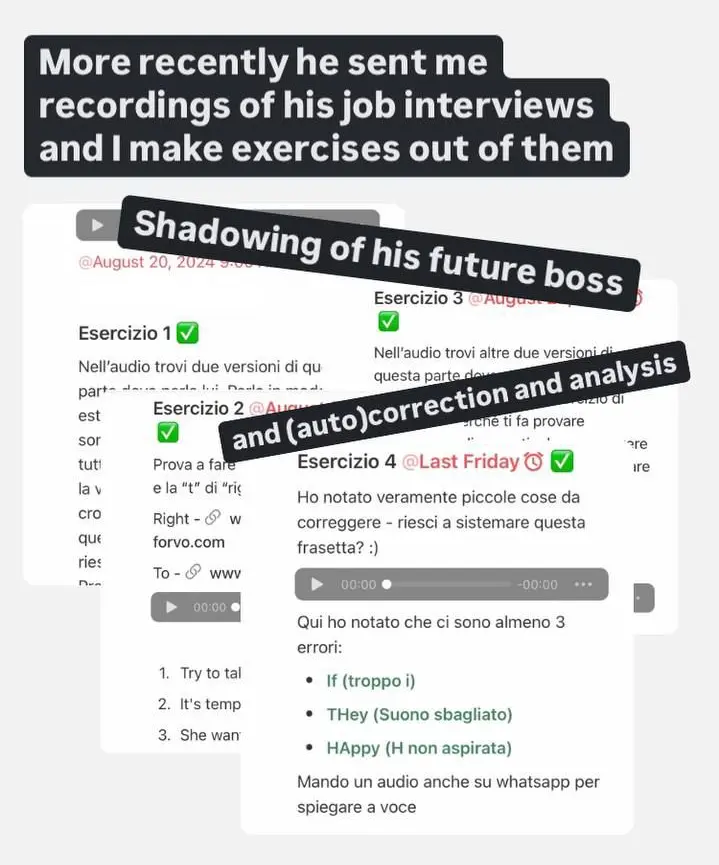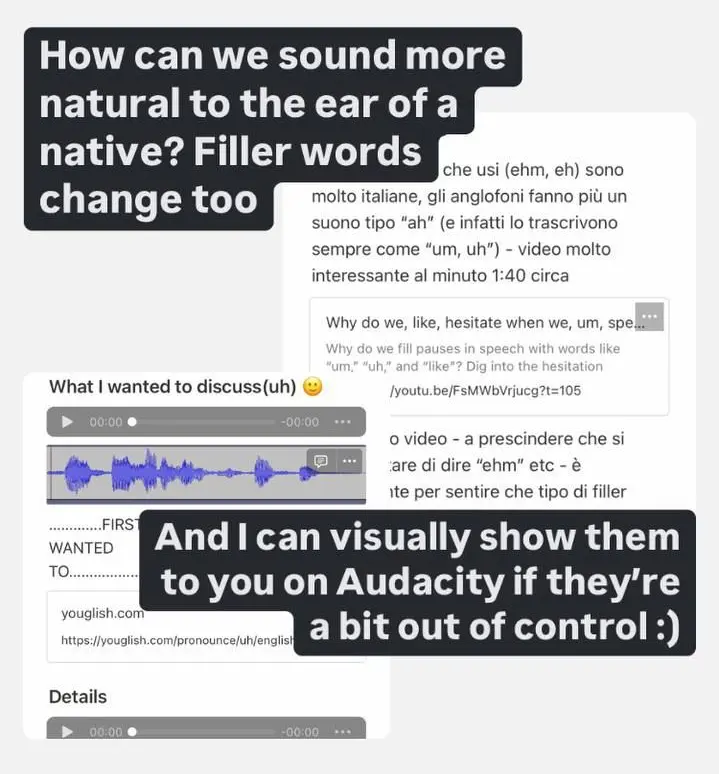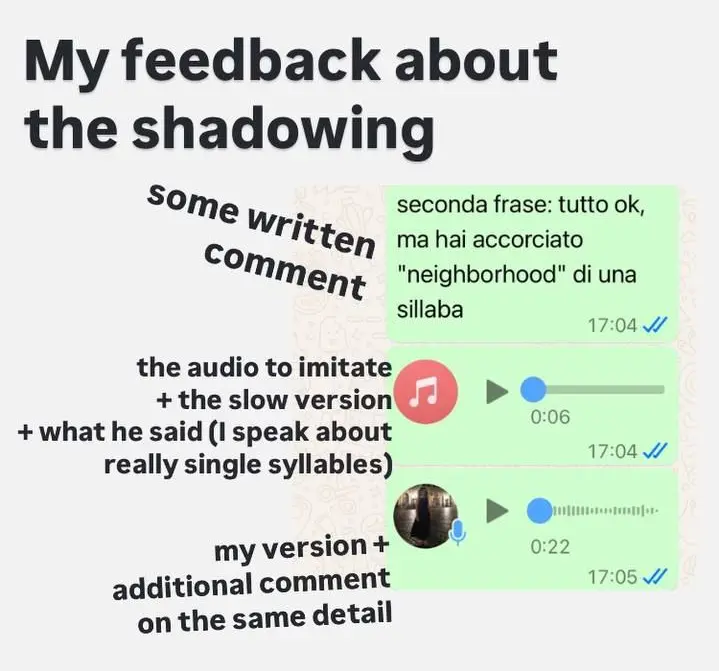Mastering English Pronunciation: A Personalized Approach to Accent Improvement
In my journey as a language coach, I've developed my own motto: to offer others what I would have loved to receive as a language student.
Among other things, this approach has led me to create a highly personalized method for helping individuals improve their English pronunciation and accent.
Let me take you through my process and show you how we can work together to enhance your English speaking skills.
Accent Analysis
This is a glimpse of the work I've been doing with a student of mine based in the Netherlands.
We worked some months together on his Dutch, then at some point his priorities changed and he asked me to help him with English pronunciation, which is something I had never done before and it was really a great learning experience for me too.
He started sending me recordings and I started analyzing them more and more thoroughly, focusing on specific words and sounds.
This deep dive into the nuances of pronunciation has allowed me to identify subtle areas for improvement that might otherwise go unnoticed.
By paying close attention to how native speakers articulate certain sounds and comparing them to learners' pronunciations, I can pinpoint exactly where and how to make adjustments.
There's no time effective imitation without analysis and observation first.
Customized Learning Experience
I create exercises from real-life recordings (for example job interviews where both his voice and the recruiter's one can be heard), tailoring the learning experience to his needs.
This approach ensures that he's practicing with relevant, contextual material that directly applies to his goals and challenges.
The Power of Shadowing
A key technique in my coaching arsenal is shadowing native speakers.
This involves listening to a recording of a native speaker and attempting to mimic their speech as closely as possible.
I break down this process into manageable parts, allowing you to focus on specific aspects of pronunciation, such as individual sounds, word stress, or sentence intonation.
This method helps develop muscle memory for correct pronunciation and improves overall fluency. If needed I add some links to check for theory and further practice, otherwise I always base myself on feedback and correction, and never put theory first.
As a person who is used to articulating words clearly, believe me that the amount of a Bostonian can pack into 10 seconds is mind-blowing!
Beyond Job Interviews: Real-world Application
Another type of exercise I love is to check how other non-native speakers pronounce English words. It's an extremely interesting training for our ears, beyond being culturally enriching.
Feedback and Improvement Loop
I provide written comments on specific pronunciation issues, often accompanied by audio explanations to demonstrate the correct sounds.
But the learning doesn't stop there - I encourage self-correction and continuous practice. By actively engaging in the improvement process, you'll develop the skills to monitor and adjust your own pronunciation even when you're not in a lesson.
Through careful analysis, personalized exercises, and continuous feedback, we work together to improve your accent in a way that feels natural and sustainable.
Our Mouth is our Music Instrument
Remember, improving your accent is a journey, not a destination. It requires patience, practice, and persistence. But with the right guidance and a personalized approach, you can make significant strides in your English pronunciation.
If you're interested in accent training, just see your mouth as your personal music instrument. Just like in music, a part of the results comes from natural attitudes, but all the rest is a pure matter of training.
With the right guidance anybody can see great improvements.
Book a free consultation to discuss how we can improve your English accent today!





